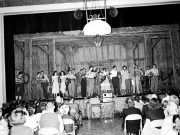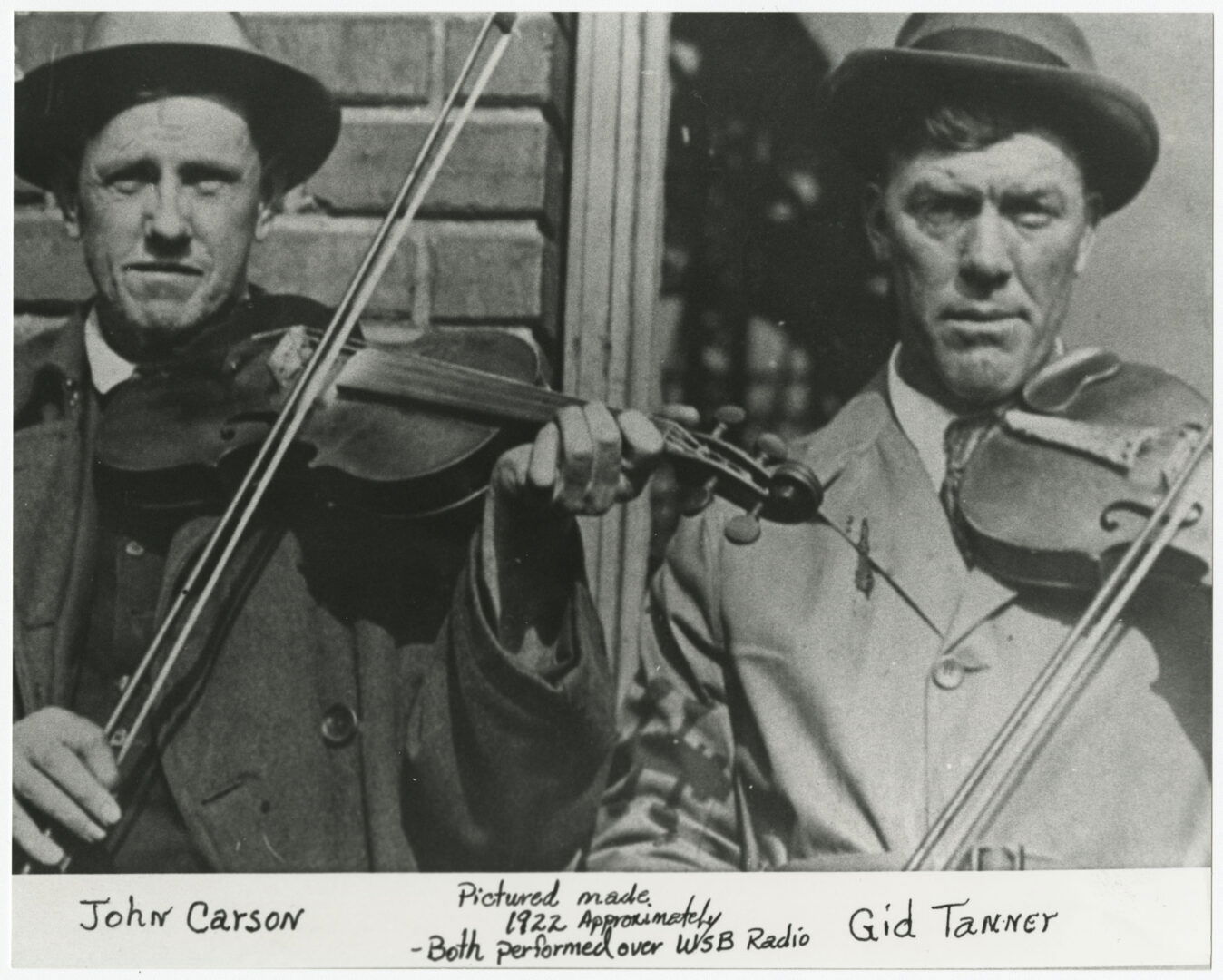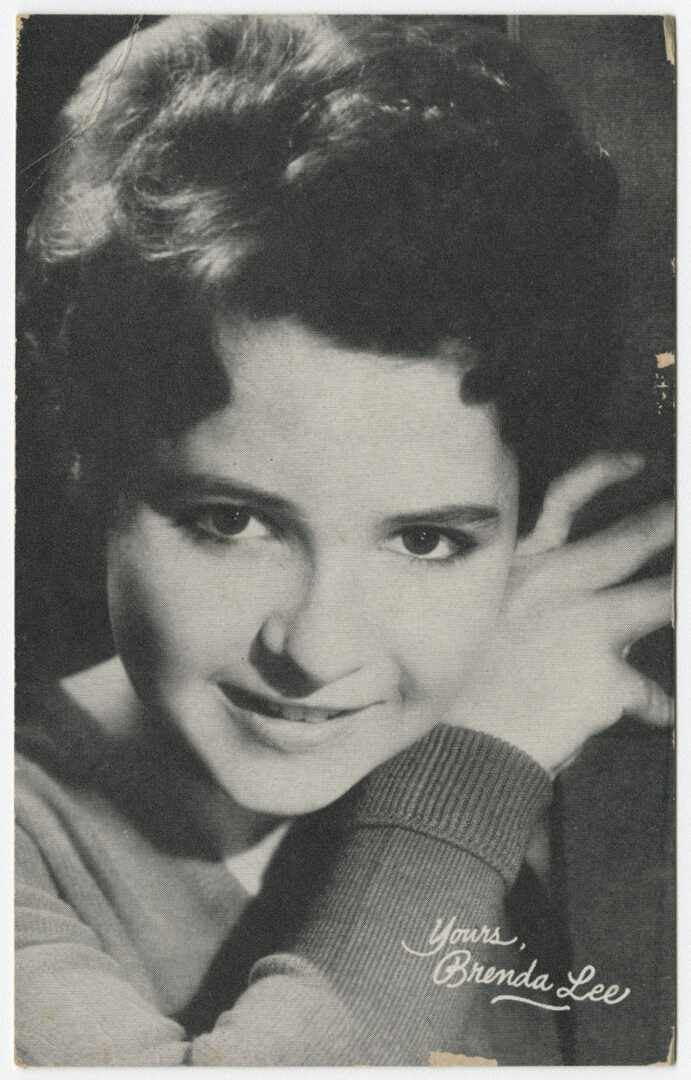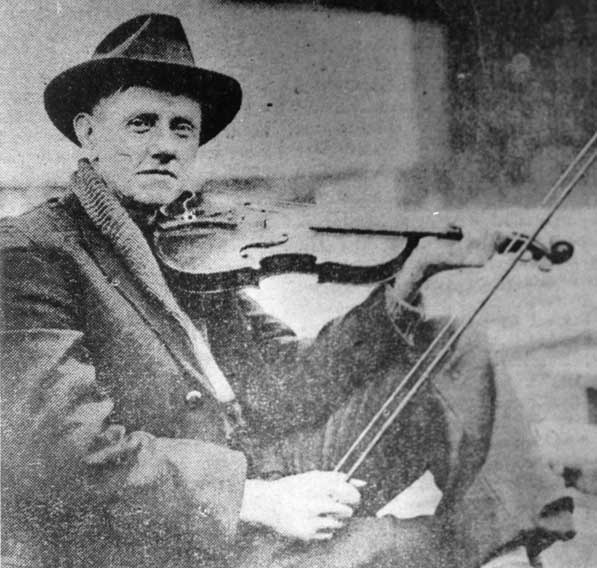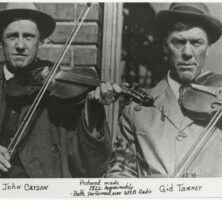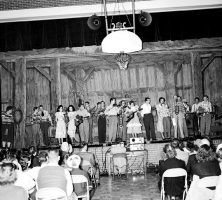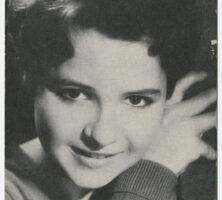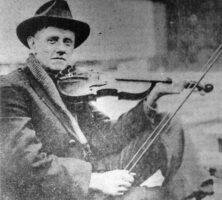Country music has played a large role in the culture of Georgia, as it has in all southern states, and Georgians have played major roles in the history of country music.
A Brief History
The event often referred to as the birth of country music took place in 1927 in Bristol, Tennessee, when the Victor Records talent scout and recording engineer Ralph Peer set up a temporary recording studio on the last leg of his tour of the South. During these sessions, which came to be known as the “Bristol Sessions,” Peer recorded Jimmie Rodgers and the Carter Family, who would become country music’s first major stars.
But four years earlier, Polk Brockman, who worked as director of the phonograph department in his grandfather’s Atlanta furniture store, had urged Peer to record the Georgia cotton mill worker Fiddlin’ John Carson. Peer was initially unhappy with the recordings—he famously called them “pluperfect awful”—but the initial pressing of 500 copies sold out within days and total sales soon surpassed half a million, making Carson the genre’s first hitmaker.
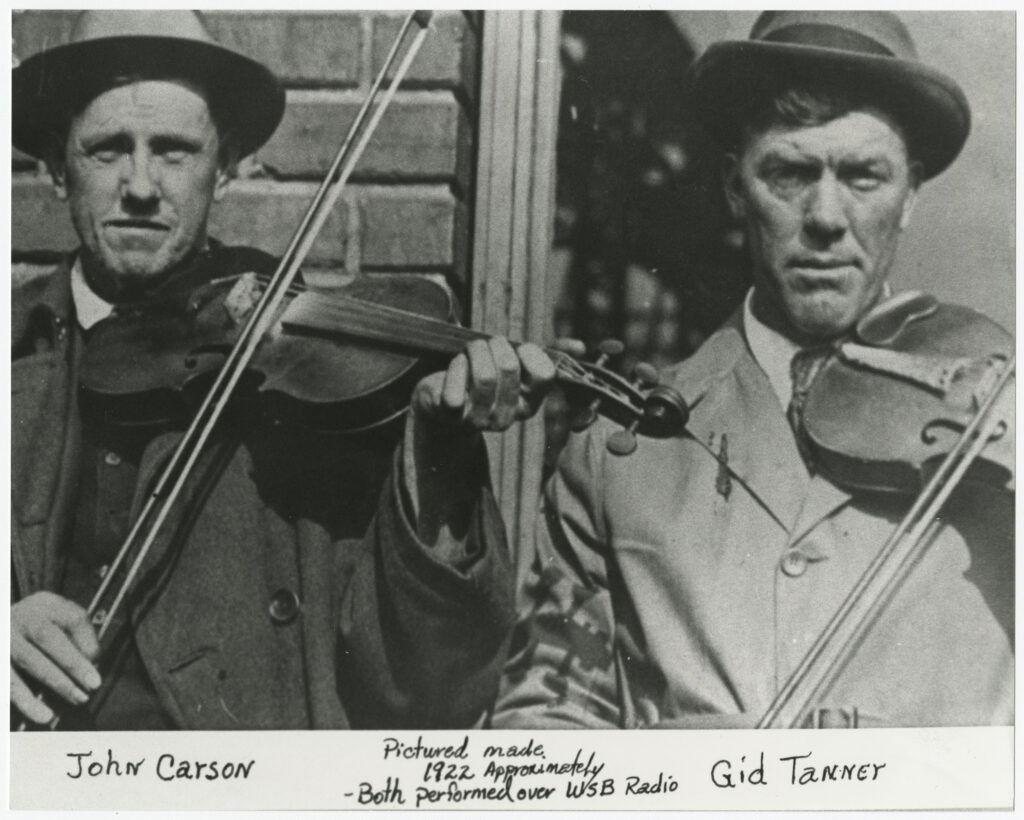
The growth of commercial country music corresponds with both the urban migration of rural southerners, prompted to move first by the promise of city jobs and then by the agricultural setbacks of the Great Depression, and with the rise of radio as a form of entertainment. As rural southerners moved to the cities and to the North in search of employment, they took their musical tastes with them. “Barn Dance” radio programs emerged in the mid-1920s with Chicago’s “National Barn Dance” in 1924 and Nashville’s “Grand Ole Opry” a year later, and they grew in popularity through the 1930s with venues in major cities throughout the United States and Canada. The Atlanta radio station WSB ran the “WSB Barn Dance” from 1940 to 1950.
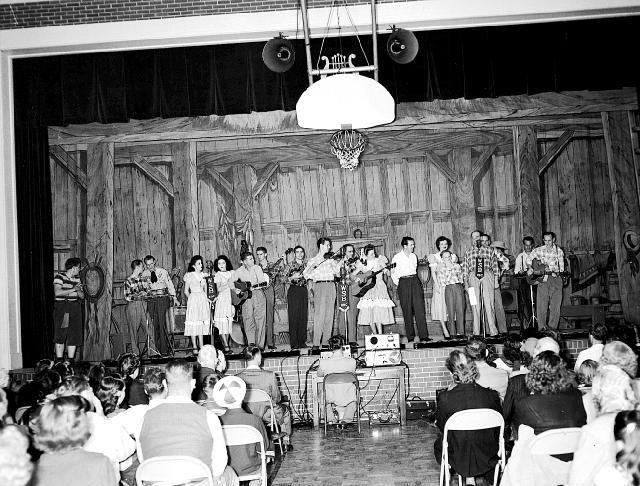
The repeal of prohibition in 1933 facilitated the growth of the honky-tonk era, which brought a more raucous musical style and lyrical content into country music. Honky-tonks were dance halls where lively music accompanied dancing and drinking. In the 1950s the popularity of honky-tonk musician Hank Williams (an Alabama native) was a turning point, bringing the honky-tonk ethos not only into mainstream country music but into pop music as well.
During the 1960s and 1970s Chet Atkins, who was born in Tennessee and raised in Mountain City (Rabun County), led the country music industry into fashioning a softer style, which featured string arrangements and background vocal ensembles. This effort to appeal to a wider market by removing the twang and rough edges from the music was dubbed the “Nashville Sound.” Atkins, an accomplished guitarist, became the most influential studio producer in the industry, but the tension between sticking to country’s rural working-class roots and appealing to a wider audience has been a defining conflict in the music’s history.
The 1980s saw a return to traditionalism led by artists like Texan George Strait and followed by North Carolinian Randy Travis and Georgian Alan Jackson. These performers sang about traditional working-class themes in a straightforward musical style, featuring unembellished traditional instruments and production.

During the 1990s country music again experienced a boom in popularity. In fact, country gained the largest radio market share with the best-educated and highest-income audience of any radio format. The musician at the front of this market surge was Oklahoman Garth Brooks. Brooks’s musical style is influenced by Strait’s country traditionalism as well as by rock music bands like Kiss and Boston and folk-rock acts like Don McLean and Dan Fogelberg.
Country music continued growing and evolving during the first decades of the twenty-first century. Following the September 11th terrorist attacks, songs often took on a patriotic tone. Although some artists embraced a more xenophobic lyricism, others, like Alan Jackson in “Where Were You (When the World Stopped Turning),” were more reflective, finding comfort in family and religious values. Jennifer Nettles, who grew up in Douglas, released “King of the City” in 2017 to recognize the oft-forgotten and frequently maligned immigrants who also died in the attacks.
With the rise of social media, debates about new sounds, themes, and artists increased. “Bro-Country,” made popular by artists like Luke Bryan, Jason Aldean, and Florida Georgia Line, took on a greater pop sound with lyrics about partying, drinking, and riding around in pickup trucks. More traditional fans and artists have criticized the sub-genre for being repetitive and formulaic, as well as for objectifying women.
Indeed, conversations among fans have increasingly revolved around race, gender, sexuality, and politics. Bringing rap and R&B influences to the genre, Black and multiracial artists have challenged stereotypes about what constitutes “real” country music and musicians. The backlash from some fans after Lithia Springs native Lil Nas X came out as gay has likewise sparked an ongoing conversation about homophobia and underrepresentation of LGBTQ+ artists within country music. Conservative opposition to changing demographics and social norms more broadly has fueled much of these debates within the genre, as evidenced by the controversies surrounding Jason Aldean’s 2023 song, “Try That in a Small Town.”
While new sounds and artists have brought country music to wider audiences, older sounds have also seen a resurgence with the rising popularity of neotraditional country, Americana, and bluegrass.
Georgians in Country Music
Many Georgians have played important roles in the history of country music. The Albany native Ray Charles recorded Modern Sounds in Country and Western Music in 1962, paving the way for country’s appeal to wider audiences. Brenda Lee (born in Lithonia) was a nationally known performer in the 1950s and 1960s and is best known for the hits “I’m Sorry” and “Rockin’ around the Christmas Tree.” “Whispering Bill” Anderson, who grew up in Commerce, is known as one of country music’s finest songwriters and was also a noted vocal performer during the 1960s.
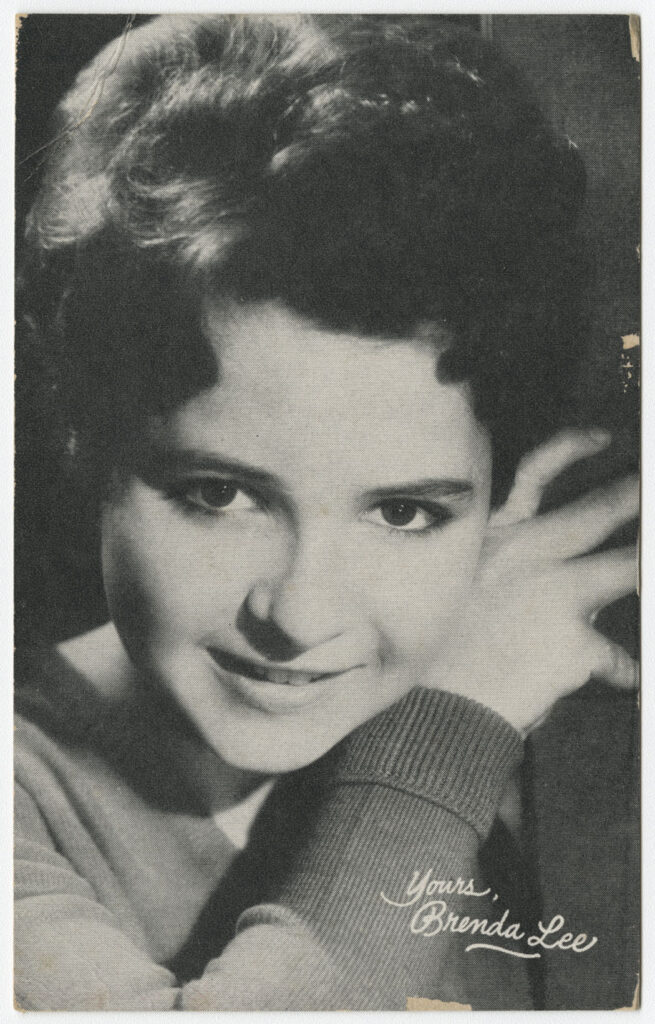
Augusta native Pete Drake, and his pedal-steel-guitar performance on Tammy Wynette’s song “Stand by Your Man,” helped to revive the steel guitar’s popularity from its disrepute during the Nashville Sound years. Travis Tritt of Marietta, a major country music figure since 1989, has revived the sounds of “southern rock” (a musical genre that Georgia can claim to have originated) and brought them into the mainstream of country music. Trisha Yearwood of Monticello is part of the vanguard of female performers who transformed the role of women in country music during the 1990s. Songwriters Pat Alger of LaGrange and Tony Arata of the Savannah area played a major role in country music’s resurgence in the 1990s. Alger, named 1992 songwriter of the year by a number of organizations, had hits by several artists. Arata is the writer of Garth Brooks’s signature hit song, “The Dance.”

Other notable country music personalities have had significant Georgia connections. The songwriting team of Boudleaux Bryant, from Moultrie, and his wife, Felice, wrote many hits during the mid-twentieth century, including the bluegrass standard “Rocky Top” and all of the Everly Brothers’ major hits. Wally Fowler, from Adairsville, was a singer, songwriter, and promoter who founded a gospel group, the Oak Ridge Quartet (later the Oak Ridge Boys), and also helped to launch the careers of Patsy Cline and Hank Williams. He was also largely responsible for a mid-century gospel phenomenon called “All Night Gospel Sings,” which took place around the South.
Hank Penny, though not from Georgia, performed on WSB radio’s daily “Cross Roads Follies” from 1936 to 1940 and is credited with influencing the development of western swing music. Jack Greene, a 1960s-era country star, began his career by playing in Atlanta. Ray Stevens (born Harold Ray Ragsdale in Clarksdale in 1939) is known for his comedic novelty songs. Guitar wizard and successful songwriter Jerry Reed escaped the poverty of an Atlanta cotton mill village to become a major star in country music and beyond.
Ronnie Milsap graduated from Young Harris College and got his career start in Atlanta. Singer Vern Gosdin grew up in Hampton. Terri Gibbs, popular in the early 1980s, is from Grovetown. Louisianan Eddy Raven spent much of his childhood and teenage years, and first performed publicly, in the tobacco country near Metter.
Noted bluegrass instrumentalist Norman Blake of Rising Fawn has played guitar, dobro, fiddle, and mandolin on many country recordings and is best known for his guitar work on Bob Dylan’s “Nashville Skyline Rag” and the Joan Baez version of “The Night They Drove Old Dixie Down.” The Forester Sisters of Lookout Mountain had many hits during the late 1980s and early 1990s, including the country-feminist standard “Men.” Crooner Doug Stone, like Alan Jackson, hails from Newnan. The popular group Confederate Railroad got their start in Marietta and Atlanta. T. Graham Brown, from Arabi in south Georgia, had several hits in the late 1980s and revived his career in 1998 with “Wine into Water.”
In the early 2000s, Atlanta-area native Zac Brown formed the Zac Brown Band, which later achieved commercial success following the release of their hit single, “Chicken Fried.”
Several Georgia musicians have been influential in the popularization of “Bro Country.” Florida Georgia Line, comprised of Georgian Tyler Hubbard and Floridian Brian Kelley, are largely credited with launching the sub-genre with the 2012 song “Cruise.” Music journalist Jody Rosen has referred to Luke Bryan, originally from Leesburg, as “the king of the genre,” with his 2013 compilation album Spring Break…Here to Party exemplifying the sub-genre’s primary themes.
More recently, social media has helped to launch the careers of several new and underrepresented artists. Country Rapper Blanco Brown’s 2019 song “The Git Up” topped the charts after it went viral as a dance challenge on TikTok. Kane Brown, who grew up around northwest Georgia, rose to fame after posting videos in which he covered several songs, most notably George Strait’s “Check Yes or No.” And The Castellows, three sisters from Quitman County, broke onto the nontraditional country scene when they posted covers on Instagram and TikTok.


